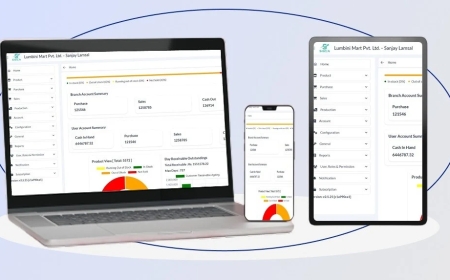Payroll Differences: Limited Liability Company vs. Self-Employed in the UK
Explore payroll differences between limited liability companies and self-employed businesses in the UK. Learn about personal taxation, corporation taxation, VAT, year-end accounting, and more.

Choosing how to run your business in the UK isnt just about branding and control it has deep financial and legal implications. One of the most important areas affected by your business structure is payroll.
Understanding payroll differences between a Limited Liability Company (Ltd) and being self-employed is vital. It affects everything from how you pay yourself to how much tax you pay, and it even influences your compliance responsibilities at year-end. In this article, well explore these differences and show how they connect to personal taxation, corporation taxation, year-end accounting, management accounting, VAT, and choosing a business structure wisely.
Payroll for Self-Employed Individuals: Simplicity but Less Flexibility
If youre self-employed (also known as a sole trader), you and your business are legally the same entity. This means you dont technically run a payroll for yourself. Instead, you simply draw money from the business as needed.
Personal Taxation
For self-employed people, income is taxed under personal taxation rules. You report your profits on your Self Assessment tax return and pay income tax according to the applicable bands. National Insurance contributions (Class 2 and Class 4) are also calculated based on your profits.
Because theres no traditional payroll, there are no employer responsibilities such as paying Employers National Insurance or providing workplace pensions. While this simplifies things, it also limits tax planning flexibility.
Management Accounting and Year-End Accounting
Although self-employed individuals dont have payroll complexities, its still important to maintain good financial records for year-end accounting. Effective management accounting helps track profits, forecast tax liabilities, and manage cash flow throughout the year, even without a formal payroll system.
Payroll for Limited Liability Companies: More Structure and Responsibility
A Limited Liability Company is a separate legal entity. As a director, you become an employee of your own company. This means you can (and usually do) run a payroll for yourself.
Corporation Taxation and Salary Planning
A major advantage of operating as a Ltd company is flexibility in paying yourself via a mix of salary and dividends. Your salary is a deductible expense for the company, reducing its taxable profit and, consequently, the corporation taxation liability.
The company pays corporation tax on its profits (after allowable expenses, including salaries). Directors typically pay themselves a modest salary (to stay within lower tax and NI thresholds) and take the rest as dividends, which are taxed differently.
This strategy requires careful planning and often benefits from professional advice on management accounting to maximise tax efficiency.
Employer Obligations
Running payroll as a limited company director comes with obligations:
-
Registering as an employer with HMRC
-
Deducting and paying income tax and employee National Insurance contributions
-
Paying employer National Insurance contributions
-
Setting up and contributing to a workplace pension scheme if required
All these responsibilities make payroll for Ltd companies more complex but also open up tax planning opportunities.
VAT and Payroll
Although VAT is generally separate from payroll, businesses registered for VAT must ensure their overall financial records are robust and compliant. Payroll records are often scrutinised during VAT inspections to check overall compliance and accurate financial reporting.
Year-End Accounting Differences
For self-employed individuals, year-end accounting involves preparing a Self Assessment tax return. Theres no payroll reconciliation or statutory accounts required.
For Ltd companies, year-end responsibilities include:
-
Preparing and filing statutory annual accounts with Companies House
-
Completing a Corporation Tax Return with HMRC
-
Reconciling payroll records and filing final Full Payment Submission (FPS) and Employer Payment Summary (EPS) if needed
Proper management accounting throughout the year makes this process smoother, helping directors avoid surprises and ensure compliance.
Choosing a Business Structure: Payroll Considerations
When choosing a business structure, payroll obligations should be a major factor.
-
Self-employed: Simple, no payroll for yourself, straightforward personal tax filings.
-
Limited company: More administrative tasks, but offers tax efficiency and better long-term planning flexibility through salary and dividends.
The right choice depends on your business size, profit level, and personal financial goals. While many start as sole traders to keep things simple, growing businesses often move to a Ltd structure for more control and potential tax advantages.
Management Accounting: Supporting Payroll Decisions
Good management accounting is crucial for both self-employed individuals and limited companies, but it plays an even bigger role for Ltd companies. Regular management accounts help you decide:
-
How much salary vs. dividends to take
-
When to adjust payroll to manage cash flow
-
How to budget for taxes and employer obligations
This proactive approach not only supports compliance but also maximises profitability and personal income.
VAT Implications
Businesses above the VAT threshold must register for VAT regardless of structure. However, Ltd companies with payroll have more detailed financial systems in place, making VAT compliance smoother.
For self-employed individuals, managing VAT is simpler but still requires accurate records of income and expenses to file correct returns. Mistakes can lead to penalties and interest, making professional support crucial.
Final Thoughts
Payroll might seem like a back-office task, but it has a huge impact on your business finances and personal income.
For self-employed individuals, simplicity is key no payroll, straightforward tax returns, and direct control over profits. But this comes with fewer opportunities for tax planning and potentially higher personal tax bills.
For limited companies, payroll adds complexity but offers major advantages. It allows strategic salary and dividend combinations to reduce corporation taxation and personal taxation liabilities. However, it requires more detailed record-keeping, compliance with employer obligations, and careful year-end accounting.
When choosing a business structure, consider your future goals, expected income, and willingness to handle (or outsource) administrative tasks like payroll and VAT compliance.
Contact E2E for Expert Payroll and Accounting Support
Deciding how to structure your business and handle payroll can feel overwhelming. Thats where we come in. Whether you need guidance on personal taxation, corporation taxation, management accounting, or want to understand your year-end accounting obligations, were here to help.
Get tailored advice that fits your business, your goals, and your peace of mind.
Contact E2E today to get started!



































